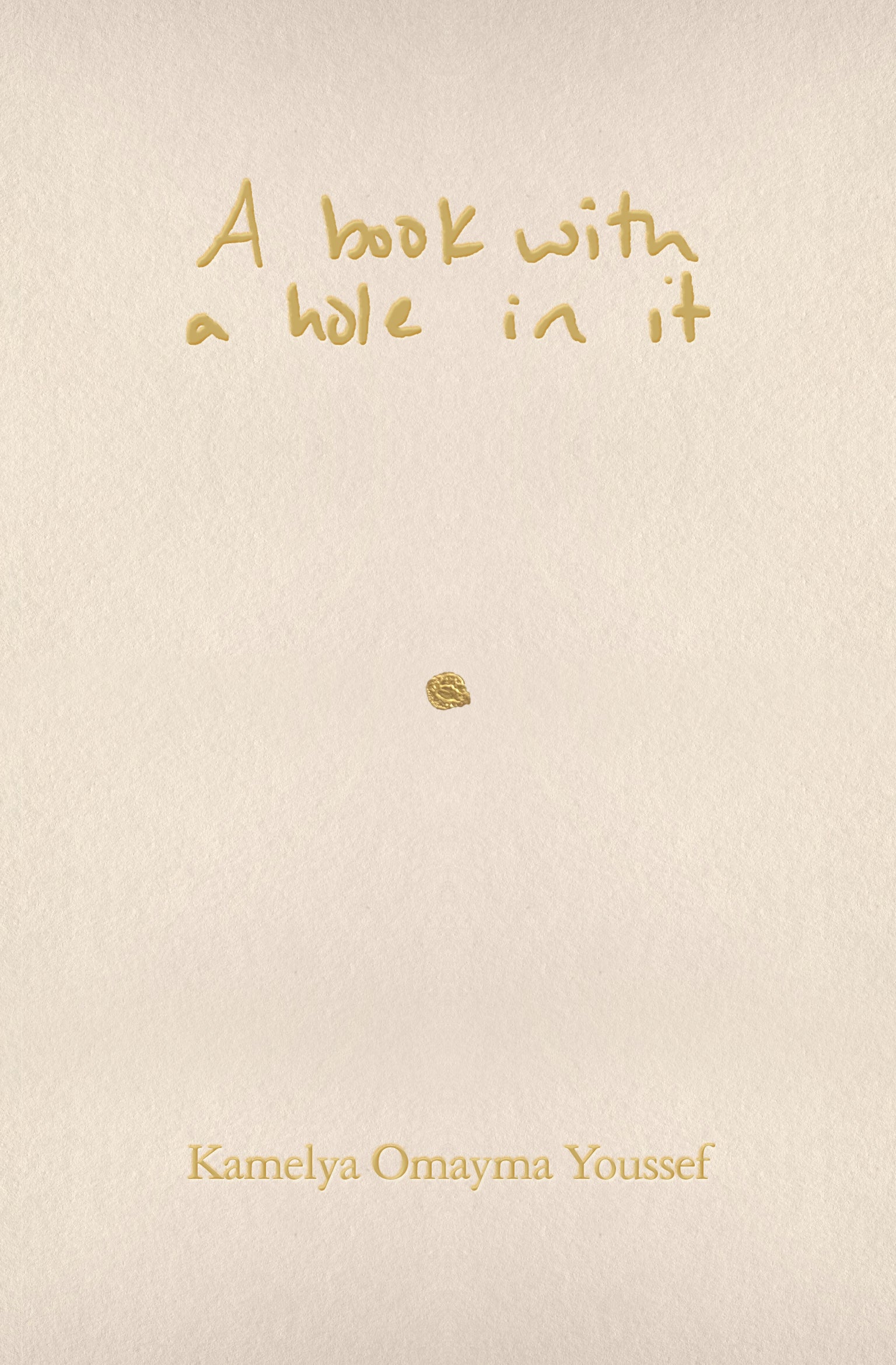1
/
of
1
Brooklyn Poets
A Book With a Hole in It by Kamelya Omayma Youssef
A Book With a Hole in It by Kamelya Omayma Youssef
Regular price
$18.00
Regular price
Sale price
$18.00
Quantity
Couldn't load pickup availability
Kamelya Omayma Youssef’s A book with a hole in it uses the poetry of the fragment and the language of everyday survival to gesture towards the fallibility of language at the juncture of the multiple, intersecting wars on women, on "terror," on the non-White body, and on people and language in diaspora. Drawn from a set of journals written over a four-month period, A book with a hole in it throws the formal, official work of poetry into relief, asking what knowledge exists beyond knowledge, which silences are too deep to be surfaced on the page, and how to pierce through trauma and violence to approach a politics of redemption.
Share


